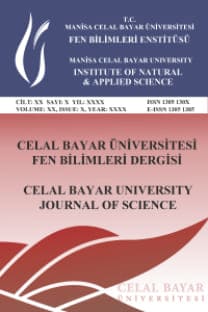About Evaluation in Chemistry Education
About Evaluation in Chemistry Education
Evaluation needs to be continuous process and students should perceive it as such, as a way of teaching and a way of keeping students development. Therefore, any kind of assessment should not make students afraid or anxious. This paper presents results of a research conducted among 580 primary school students (7thin their perception of evaluation in chemistry education. We have compared students' and teachers' opinions in two cantons in Federation of Bosnia and Herzegovina using comparable questionnaires for students and teachers designed for the purpose of this study. Results show that every teacher has its own way of assessing her/his students, that performing an experiment, if performed at all, mostly does not affect students' mark. However, knowledge is not the only factor that has influence on the mark in chemistry, but the overall students attitude towards chemistry and her/his entire personality. Differences in students' and teachers' responses between cantons were not significant. Further research should be conducted in order to evaluate outcomes of teaching process and therefore to make some changes in evaluating both students and teachers. The purpose of evaluation should be a contribution to students' progress and a tool for increasing students' motivation for learning and for gaining better results
___
- Mandic, P.; Vilotijevic, M. Vrednovanje rada u skoli, 1980, Sarajevo: IGKRO Svjetlost.
- Grgin, T. Evaluacija edukacijskih dostignuca in Edukacijska psihologija, 1997, Jastrebarsko: Naklada Slap
- Wallace, S. A Dictionary of Education, 2008, Oxford: Oxford University Press
- Andrilovic, V.; Cudina-Obradovic, M. Procjenjivanje, ocjenjivanje, vrednovanje in Psihologija ucenja i nastave, , Zagreb: Skolska knjiga.
- Simic, K. Bitne komponente pri izvo?enju zakljucnih ocjena kao dio rjesenja problematike tradicionalnog i modernog ocjenjivanja. Didakticki putokazi. 2007; 13 (45), pp. 61-67.
- National Research Council, "Science Teaching Reconsidered: A Handbook", 1997, Washington, DC: The National Academies Press.
- Slatina, M. Nastavni metod, 1998, Sarajevo: Filozofski fakultet Univerziteta u Sarajevu.
- Ebel, R.L.; Frizbie, D.A. Essentials of Educational Measurement, 4th ed.,1986, Englewood Cliffs, N.J.: Prentice-Hall.
- Kandel, M. Grading to motivate desired student performance in a descriptive laboratory course. J. Col. Sci. Teaching. 1989; 18(4), pp. 249-251.
- Rondini, J.A.; and Feighan, J.A.An ongoing grading technique for laboratory courses. J. Chem. Educ. 1978; (3), pp. 182-183.
- Johnson, D.W.; Johnson, R.T.; Smith, K.A. Active learning: Cooperation in the College Chemistry Classroom, 1991, Edina, Minn.: Interaction Book Co.
- ISSN: 1305-130X
- Başlangıç: 2005
- Yayıncı: Manisa Celal Bayar Üniversitesi Fen Bilimleri Enstitüsü
Sayıdaki Diğer Makaleler
Ferda MİNDİVAN, Hasan KAYA, Mesut ÖZER, Ramazan SAMUR, Mehmet UÇAR
Abdülkadir SÜRÜCÜ, Ayhan HORUZ, Güney AKINOĞLU, Ahmet KORKMAZ, Havva Sera ŞENDEMİRCİ
Utilization of Boron Waste as an Additive for Cement Production
Sabriye PİŞKİN, Kubra KUNT, Meral YILDIRIM, Fatma DUR, Emek Moroydor DERUN, Beril ERTINMAZ
Ahmet KORKMAZ, Havva ŞENDEMİRCİ, Güney AKINOĞLU, Ayhan HORUZ, Abdülkadir SÜRÜCÜ
Boris MAHLTİG, Torsten TEXTOR, Perrin AKCAKOCA KUMBASAR
Ferda MİNDİVAN, Hasan KAYA, Mesut ÖZER, Mehmet UÇAR, Ramazan SAMUR
